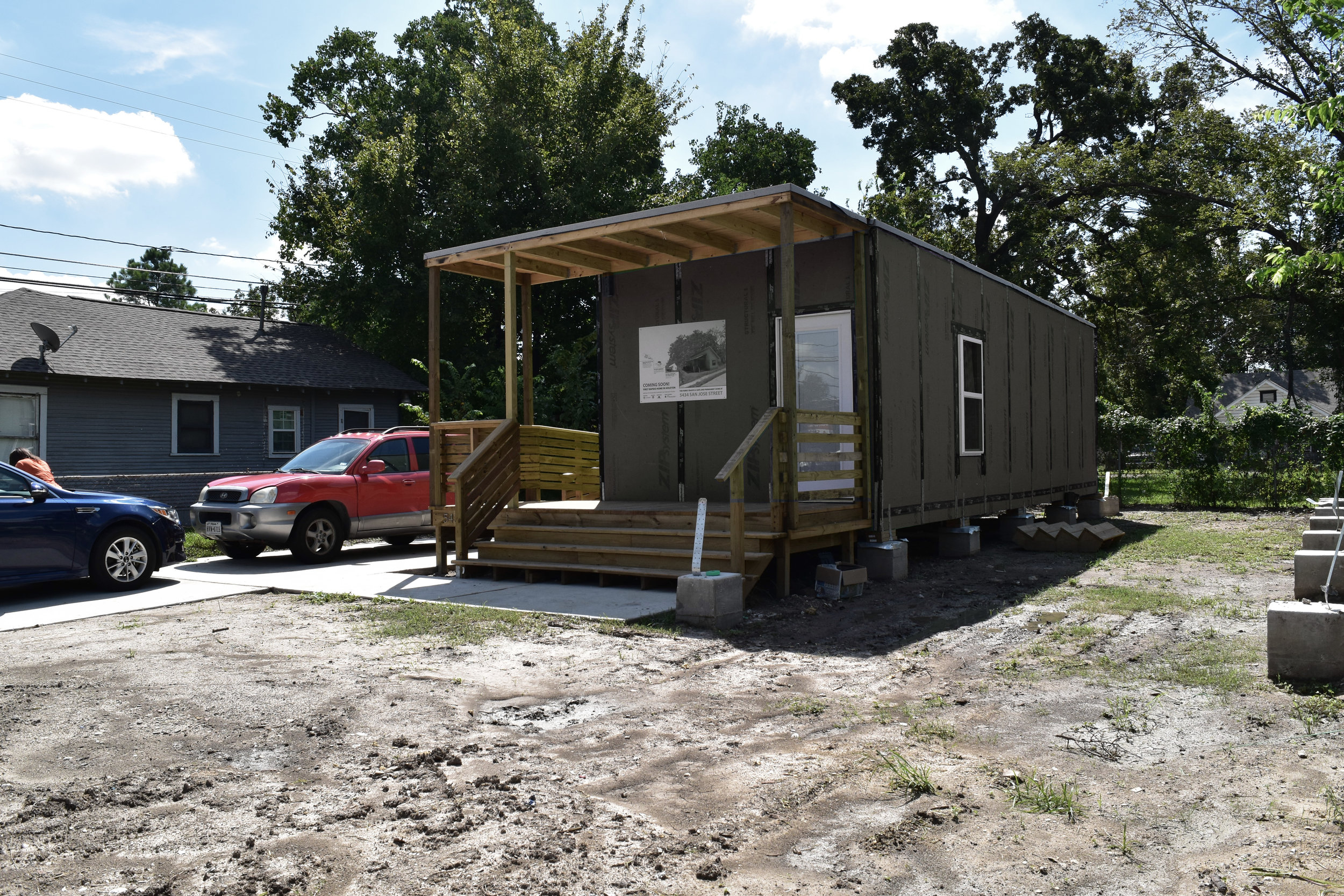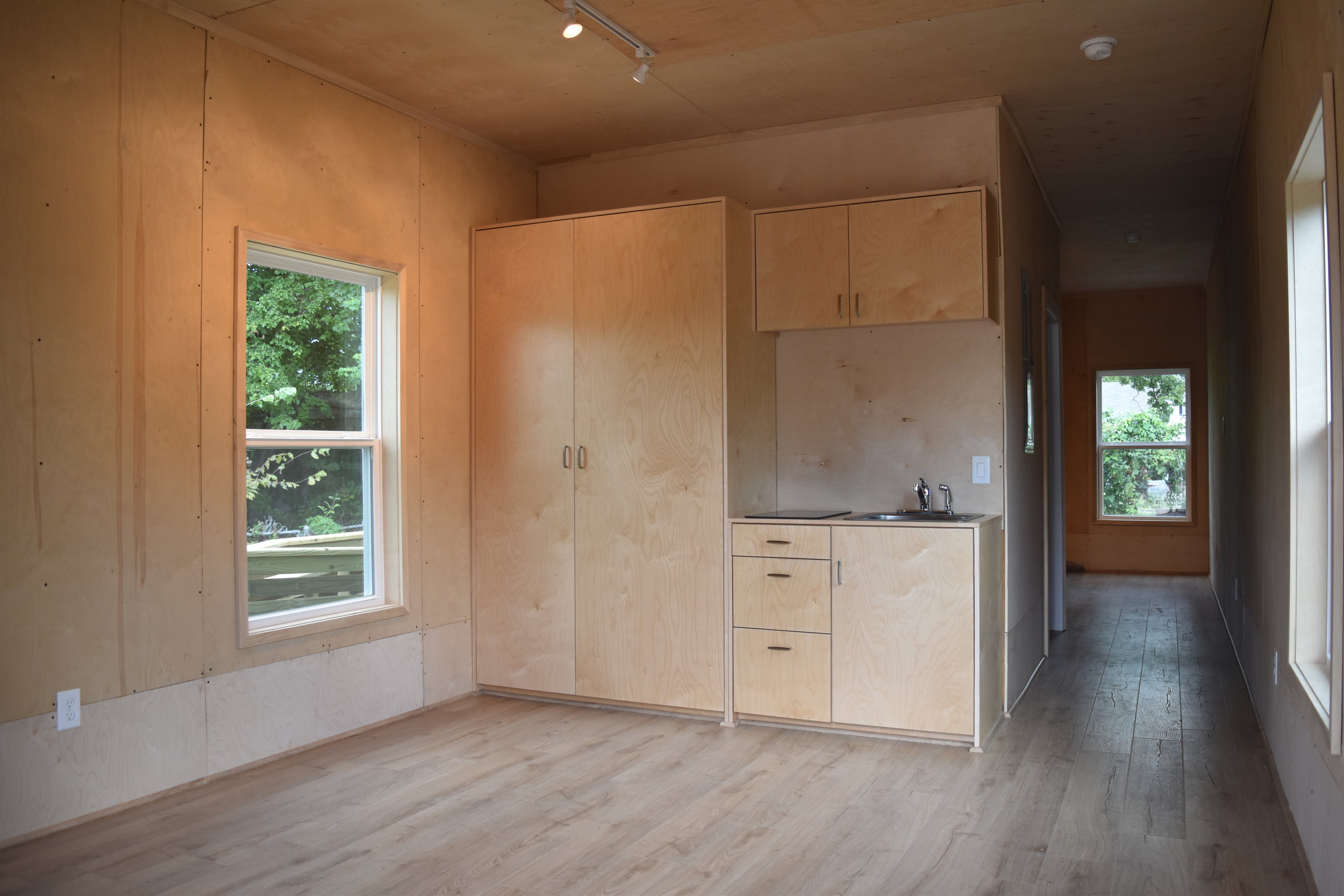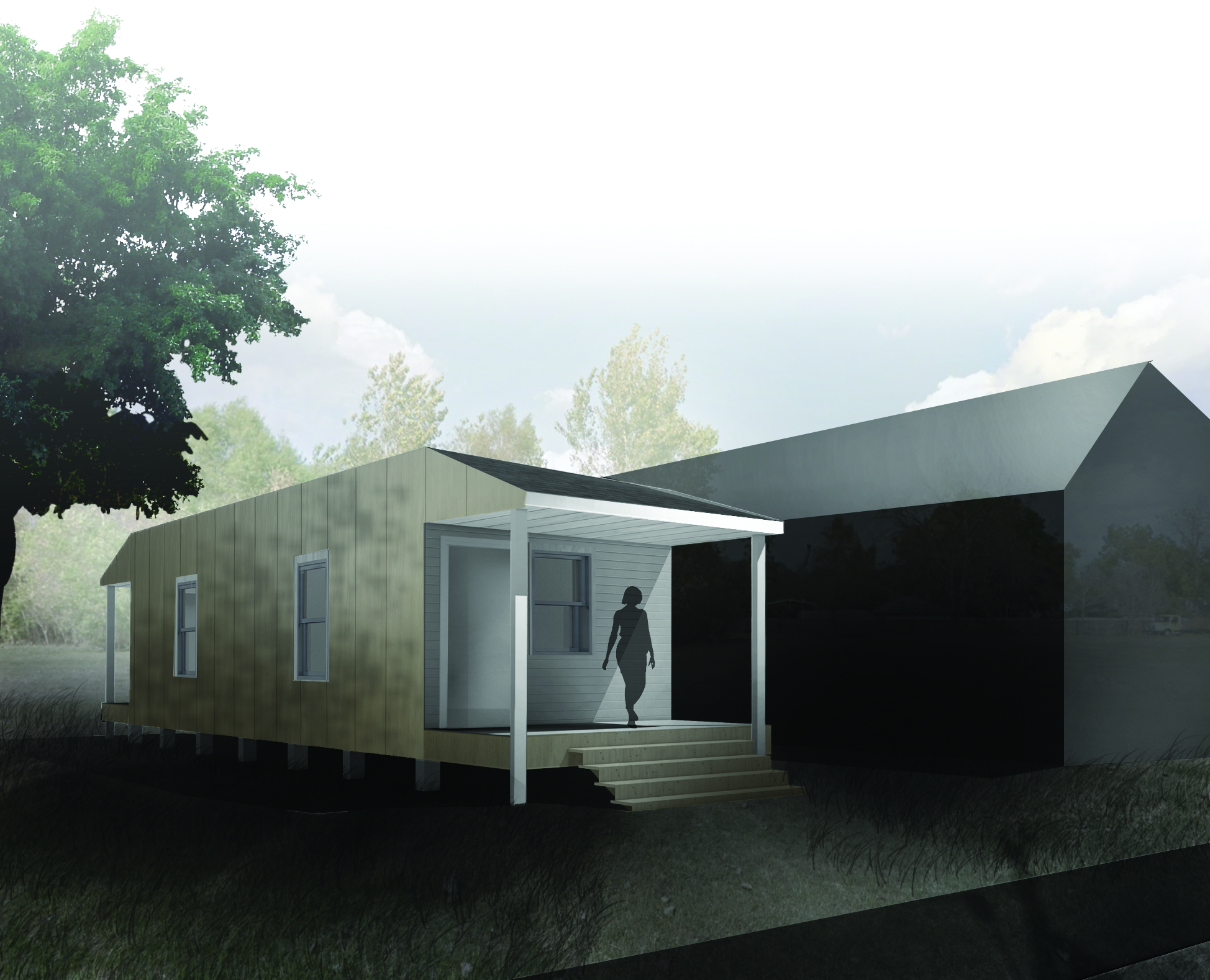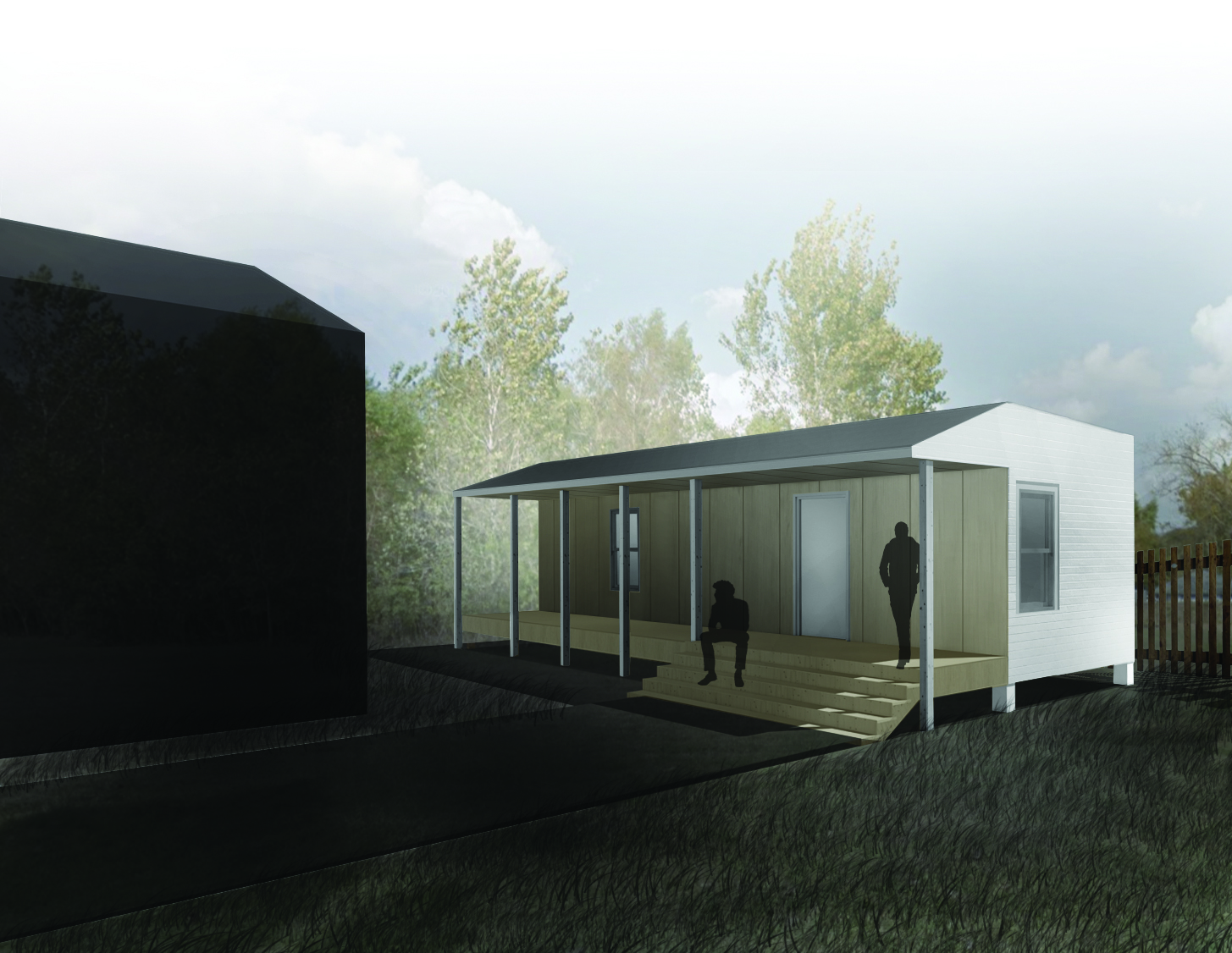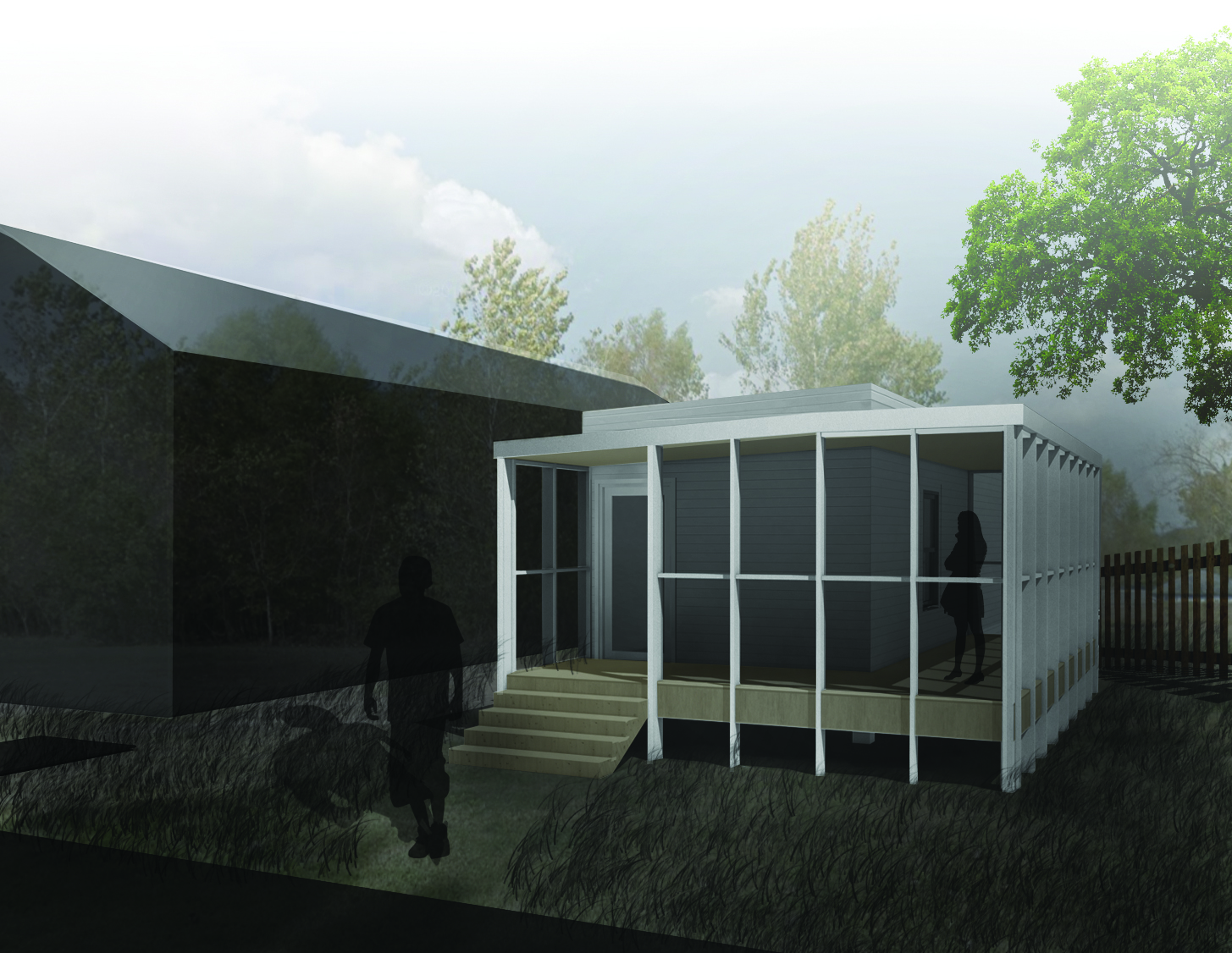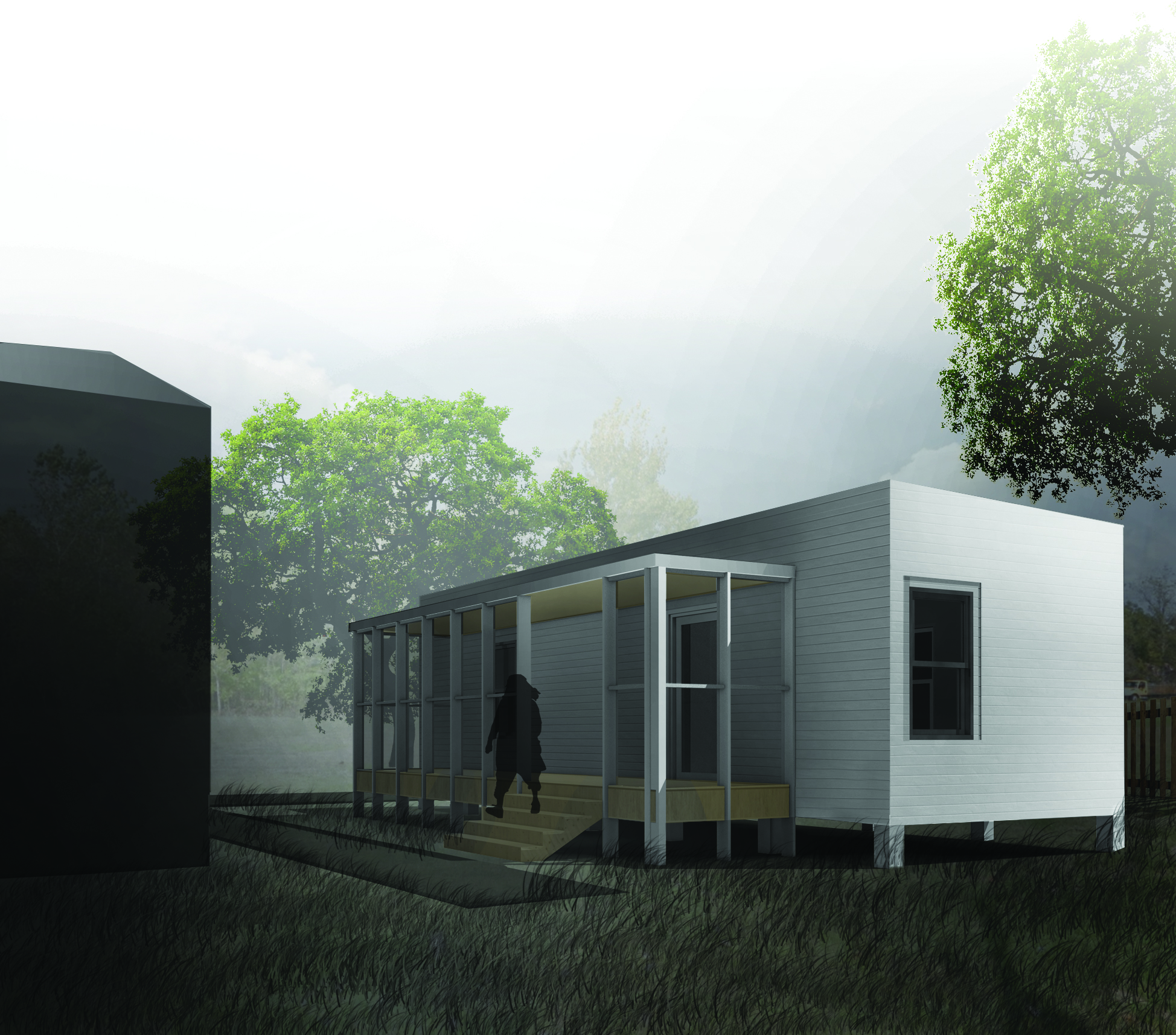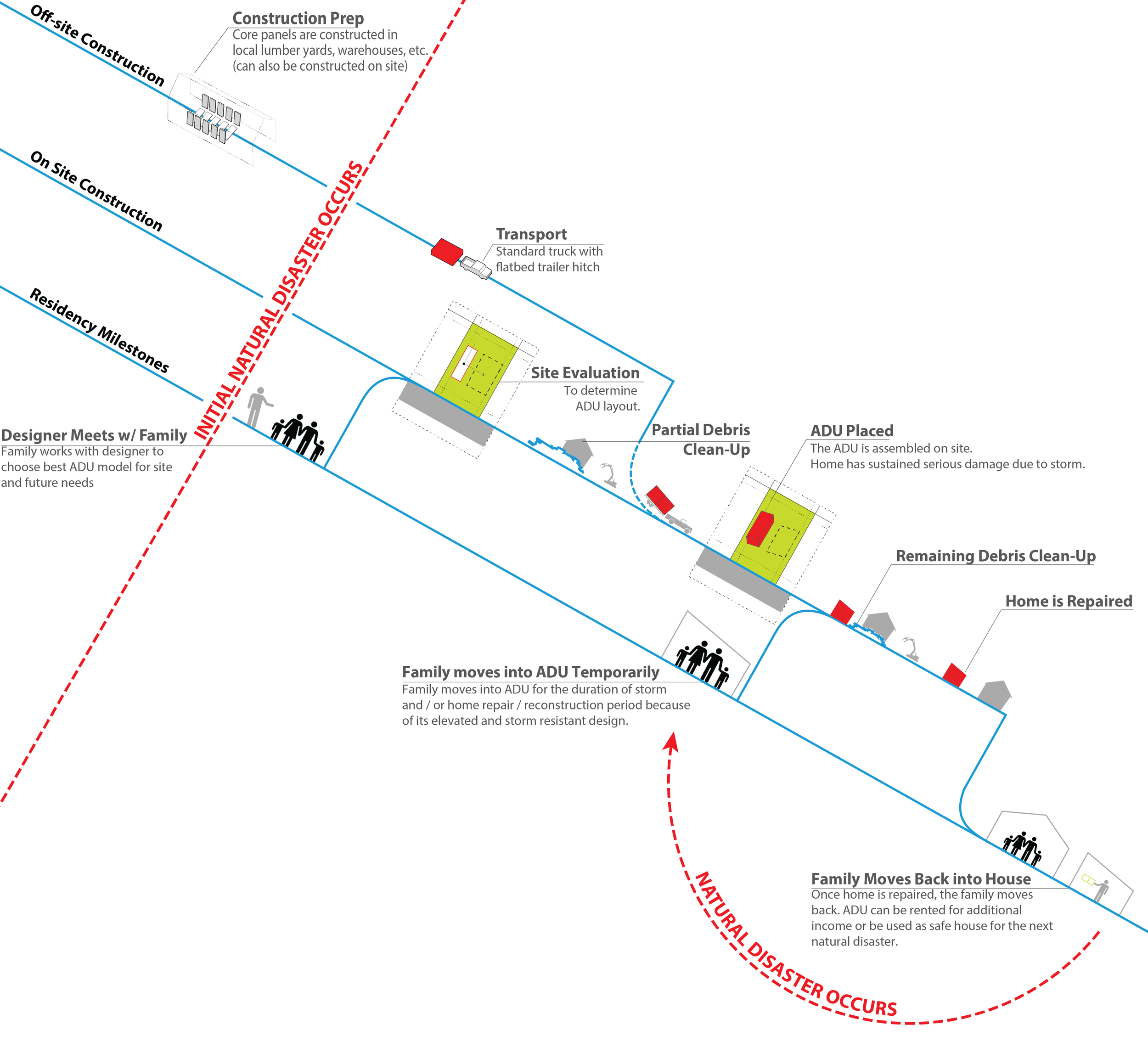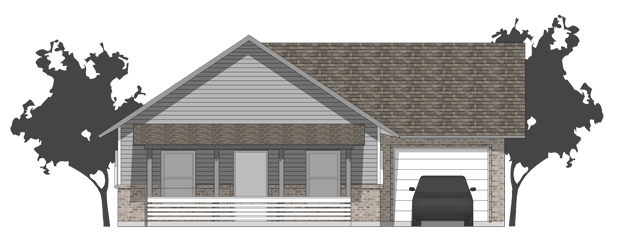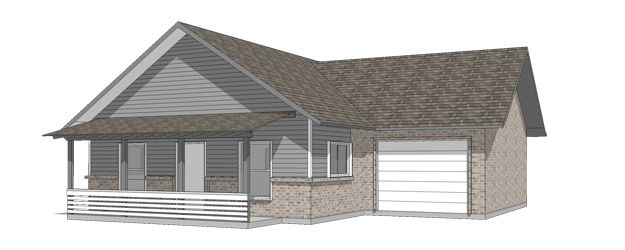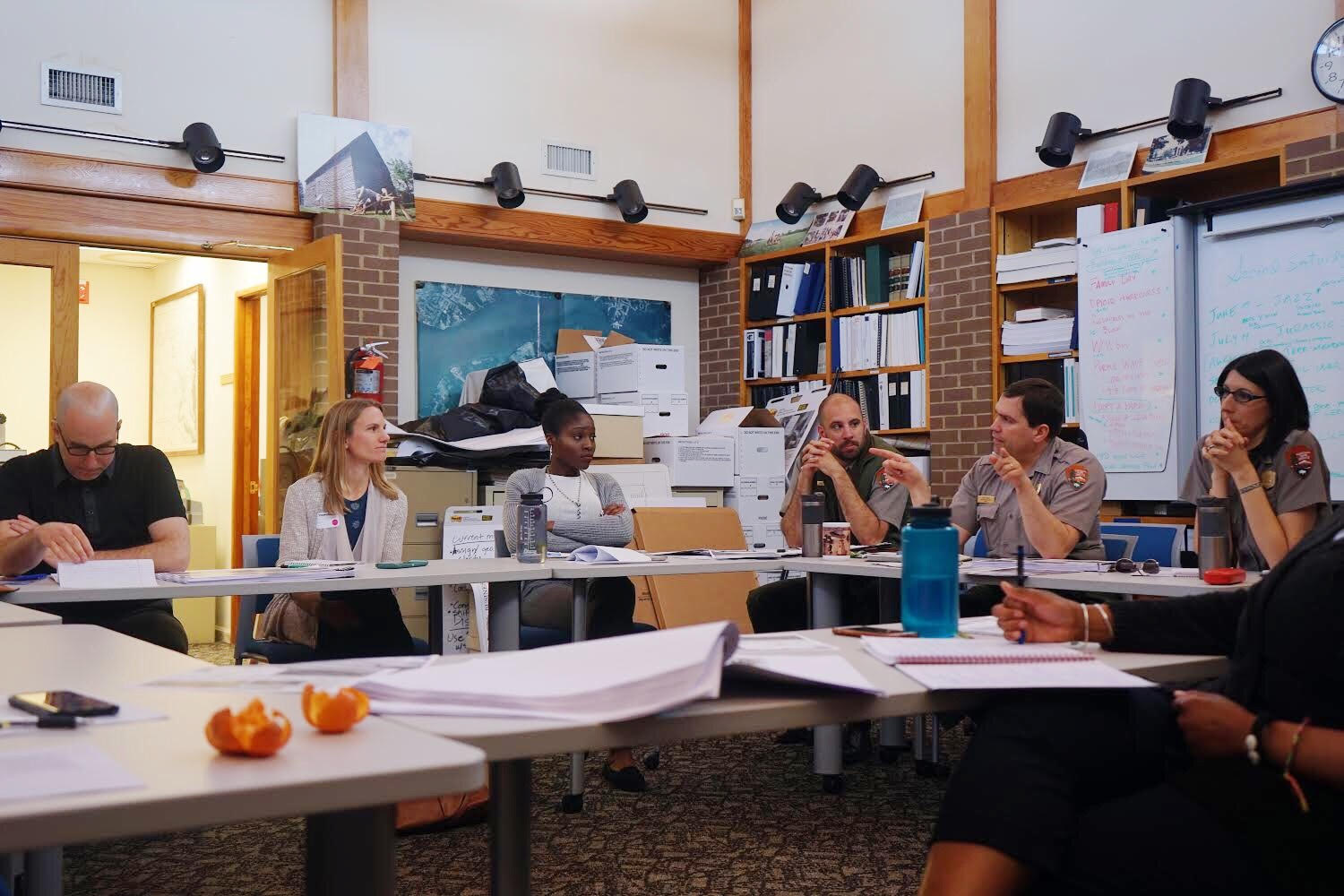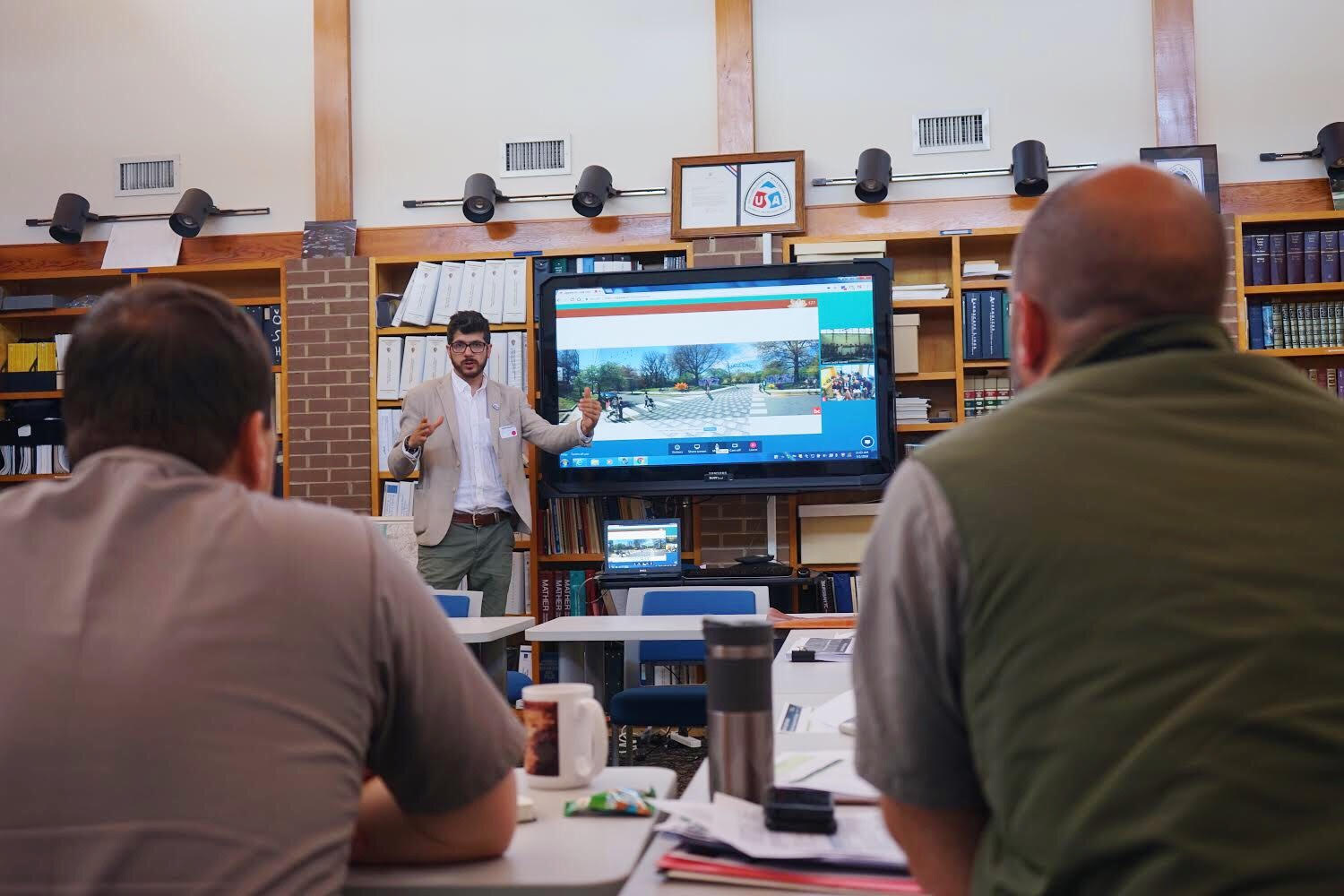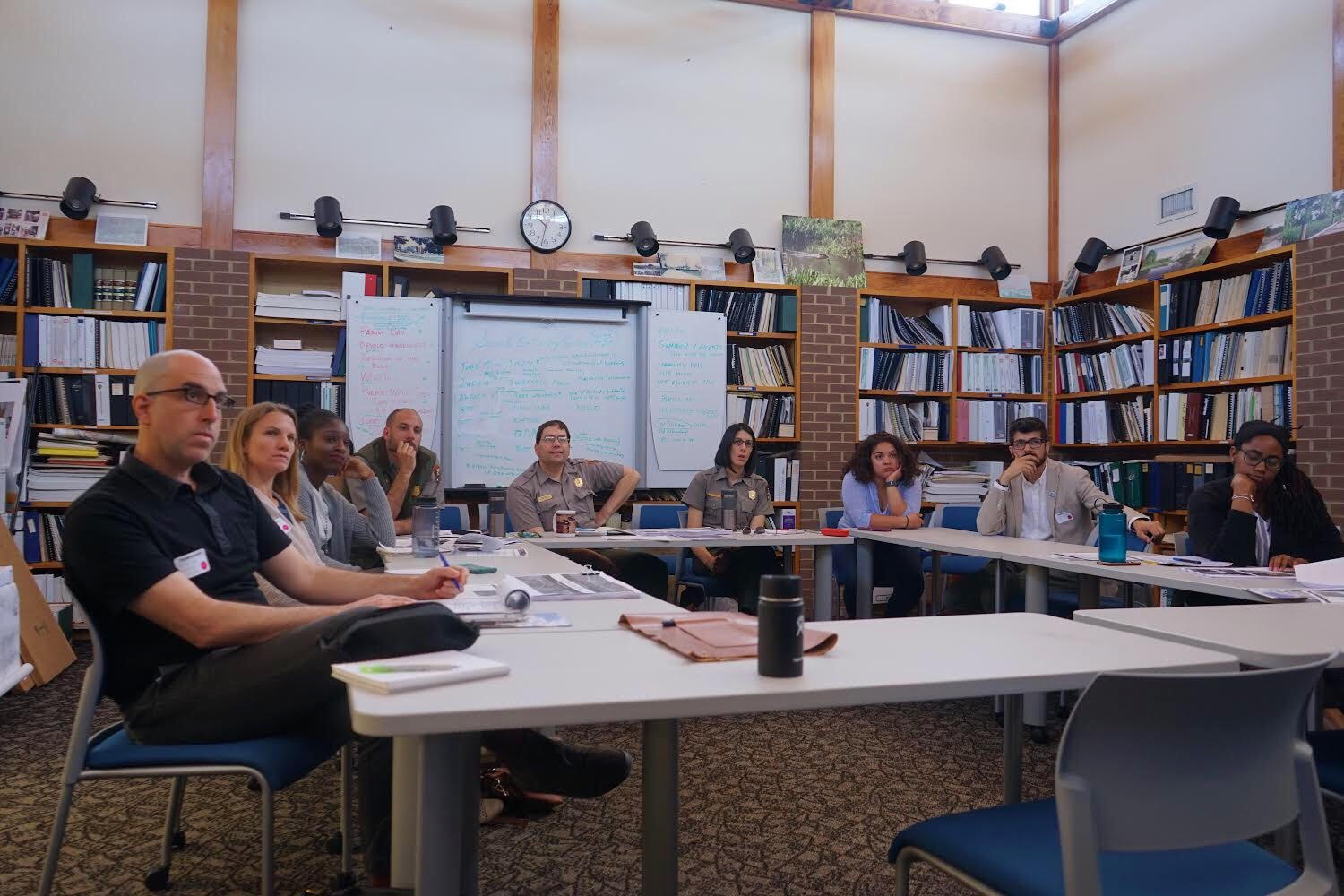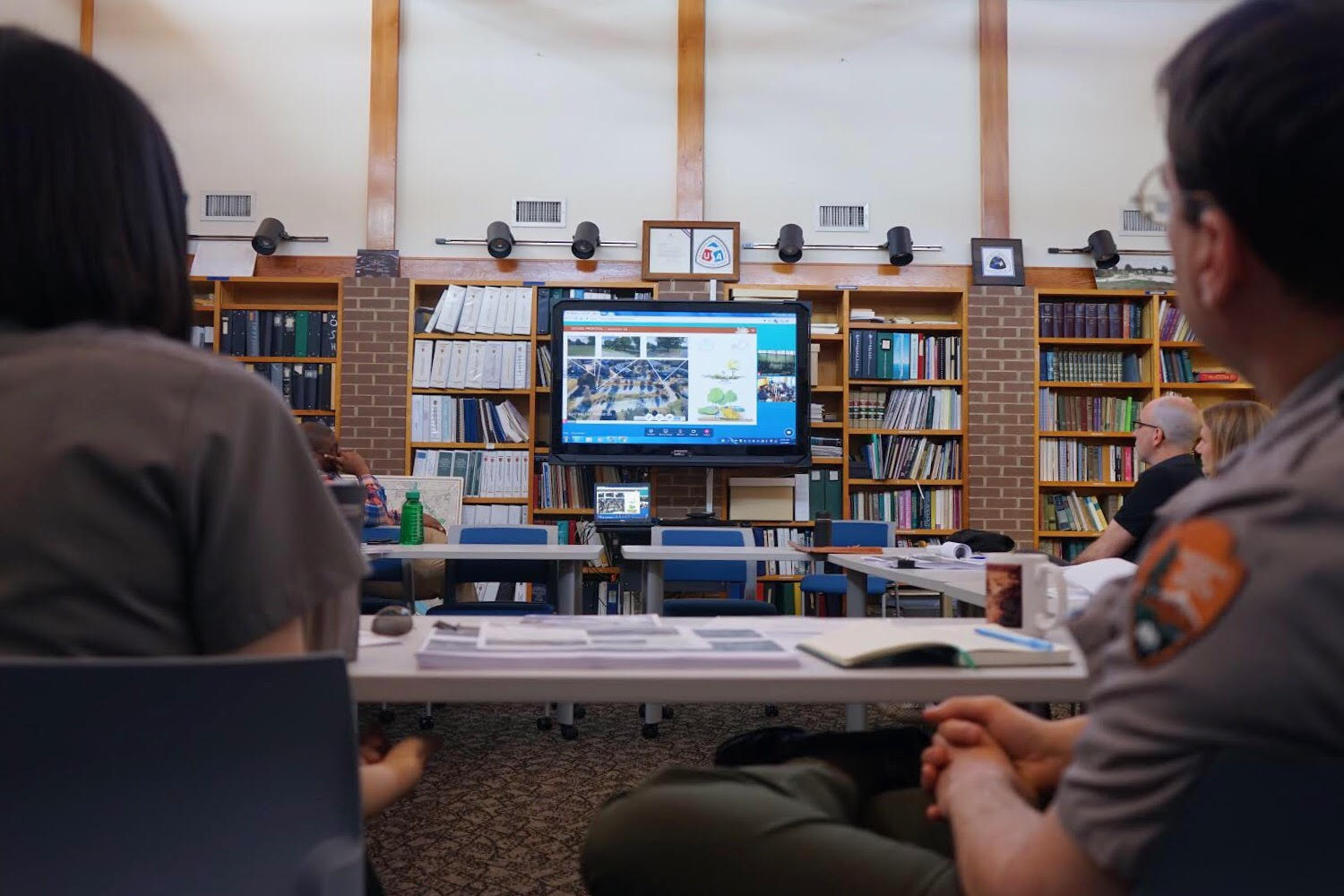There’s a new multifamily project in the pipeline in the RGV. It’s set to break ground soon - check out these renderings in the meantime!
Read MoreBelden Buena Vida, Phase III of Belden Trail & Belden Connect
Check out our progress on the Belden Trail - a new extension for the Buena Vida neighborhood in Brownsville!
Read MoreCitizens' Institute on Rural Design (CIRD) Finalists Announced
After lots of application review and interviews, [bc] along with the Housing Assistance Council (HAC) and the National Endowment for the Arts are pleased to announce that 23 communities have been selected to take part in the Citizen’s Institute on Rural Design (CIRD).
CIRD has worked with communities of 50,000 or less since 1991 to enhance quality of life and economic viability through planning, design, and creative placemaking. This is our first year partnering with HAC to lead the Institute.
The following three communities will take part in multi-day design workshops in the communities to focus on their specific challenges.
Millinocket, Maine (population 4,400): The residents of Millinocket, located near Maine’s Mount Katahdin, have mobilized around sustainability, mental health/wellness, and diversifying the town’s economic base after the departure of the paper industry. The goal is to create a design principles guidebook that will inform downtown revitalization plans and be used by local businesses to help create a unified sense of place.
Pueblo of Laguna, New Mexico (population 1,241): The Pueblo is developing an ambitious master plan for the Village of Laguna (one of six in the Pueblo) that seeks to address longstanding challenges, including a dearth of affordable housing and the need for both walkability and commercial space that builds on indigenous cultural assets such as artisanship and arid-land farming. The University of New Mexico’s Indigenous Design + Planning Institute will join local institutions to support the workshop.
Athens, Ohio (population 23,832): Mt. Zion Baptist Church Preservation Society wants to preserve and reimagine the use of a century-old church built by free-born and formerly enslaved black artisans. In addition to architectural rehabilitation, the Preservation Society and its partners envision the place as an economic engine and as a hub for black history and culture.
It was a competitive application process, as 85 applications were received — a record for CIRD. New this year, 20 additional communities were chosen to take part in a peer-learning cohort and will attend a Rural Design Summit in West Virginia this October 9-11.
We are excited to be part of this amazing team and can’t wait to delve into the design challenges in the upcoming workshops and the peer-learning cohort.
Acres Homes Update
Learn about our work in affordable housing in Houston, TX.
Read MoreTangelo Quarters Opens Its Doors
We are excited to announce that 18 families have now moved into their new homes at Tangelo Quarters! This our most recent multifamily development in partnership with the Community Development Corporation of Brownsville and the Housing Authority of Brownsville. All families living at Tangelo Quarters will enjoy a range of community amenities, such as a playground area, barbecue pavilions, and a community garden all connected by accessible routes strategically placed throughout the property.
The site is located in the Southmost area of Brownsville, a neighborhood that has historically had to deal with flooding issues due to inadequate infrastructure. With this context in mind, we designed native landscape and LID (low-impact development) infrastructure to help with drainage. As families get settled in and the vegetation starts to bloom, we expect Tangelo Quarters will set a precedent for approaching new healthy thriving communities in the Lower Rio Grande Valley.
Last month, the Housing Authority of the City of Brownsville hosted a Ribbon Cutting ceremony to commemorate the opening. During the event, every family received the opportunity to cut the ribbon of their new home. There was also live music and food to celebrate the families and all the collaborators that made this project possible. It was a great event -- and we were happy to be in attendance to help welcome new residents home to Tangelo Quarters!
Scroll through the photos below to check out the site and see some of its residents.
Read our earlier post from Tangelo Quarters construction.
Apply Now for the Citizens' Institute on Rural Design!
The Citizens’ Institute on Rural Design is accepting applications through July 22 — learn how your town can apply right here!
Read MoreWorkforce Housing for Davis, WV: Update
Affordability is a challenge for large cities and small towns alike. Learn about how we’re helping the Woodlands Development Group with a plan for workforce housing in the mountain town of Davis, WV!
Read MoreCasitas Azucar in the Rio Grande Valley
Design Associate Luis Murillo works on Casitas Azucar in [bc]’s Brownsville office
We are excited to announce that in partnership with the Community Development Corporation of Brownsville (CDCB) we have designed a new multifamily development in the city of Santa Rosa, TX. The project consists of 50 detached single-family dwellings and also includes a community room, office, laundry room, playground area and barbecue pavilions as site amenities.
This large development, called Casitas Azucar, will significantly increase the share of affordable rental housing in Santa Rosa -- a rural community with just under 3,000 residents.
The design concept was driven by Santa Rosa’s rural environment and its historic, industrial buildings. Each unit type in the development follows a simple scheme which gave our design team the opportunity to focus on the creation and articulation of green space -- a key ingredient to healthy communities.
We increased green space per family through strategic placement of each unit and the use of modular arbor structures which were articulated to enhance the garden and patio space for each habitant. By treating every unit type uniquely to its location in the site, we were able to highlight green space and create a cohesive design that carries throughout the patio spaces. These strategies result in green spaces full of trees which are used as an extension of the family’s home, representing a continuation of each dwelling’s interior living space.
When families and individuals can spend time at home comfortably both indoors and outdoors, their quality of life stands to improve. Ultimately, our goal for Casitas Azucar is to increase the opportunity for community by addressing public and private green spaces -- to give everyone the opportunity to enjoy them how they wish. Stay tuned for more updates from this exciting development!
Expanding RAPIDO for Gulf Coast Recovery
We are excited to report on our progress in bringing the RAPIDO model of temporary-to-permanent housing to families affected by Hurricane Harvey.
On July 26, the first RAPIDO Core unit in Houston opened its doors to visitors and stakeholders. Also in attendance was the family who will call the Core home. On September 20, the family moved into the first RAPIDO Core in the city of Houston, TX. The family will remain there throughout construction of the Expansion, transforming the temporary Core unit into a permanent three-bedroom home. Construction on the expansion began in October.
Our efforts have also included design for RAPIDO Accessory Dwelling Units (ADUs), which can act as temporary housing during the home repair process, and then provide a source of extra income as a rental unit after reconstruction.
The design and partnership work with Covenant Community Capital and Texas Housers to realize RAPIDO units in Houston was supported by funding partnership with Enterprise Community Partners.
We are excited to announce that we are working to design and build 15 RAPIDO Core Units in Gulf Coast communities through a new grant from the Rebuild Texas Fund. Through this grant, we are also conducting research and development for mass production of RAPIDO Cores. This will serve 15 additional families affected by the storm, while also advancing progress toward the mass production of RAPIDO Cores.
DC Public Library Fab Lab Pop-Up at NoMa Now Open
Read more about the Fab Lab here.
[bc] believes in the public library's critical role as a hub for democracy. We are excited to support the DC Public Library in extending services into neighborhoods, expanding services to facilitate the work of makers, and fostering community spaces for individuals to utilize their hands and access the tools to shape the future of their cities.
In June, the DC Public Library NoMa fabrication lab ("fab lab") pop-up officially opened! The completion of this shipping container-turned-makerspace, which houses maker equipment and easily adjustable work stations, was celebrated with an opening event on June 17, attended by the project partners.
Attendees were free to roam around the courtyard and inside the container, and to enjoy the interior craftsmanship of custom-designed maker walls and furniture and the mural on all sides of the containers. Even the tops of the containers were painted, viewable from the surrounding tall buildings.
Following the tour and open house, Executive Director of the DC Public Library, Richard Reyes-Gavilan gave a closing thank you to all partners. Reyes-Gavilan spoke about the programming and new perspective public libraries can offer, noting, "Libraries are more than just books."
The Public Library has already started hosting free DIY classes and workshops. You can learn more about upcoming events at the Fab Lab Pop-Up at NOMA on the DC Public Library website here. More information about the Fab Lab and Pop-Up can be found here.
Thanks to all of our partners and volunteers who assisted with this project!
Construction Underway on Tangelo Quarters
Tangelo Quarters, a housing development comprised of 18 single-family units, is currently under construction. Framing for the first five units has begun, and foundations for four others have been poured.
When complete, Tangelo Quarters will provide affordable, contextually-appropriate housing for 18 families in Brownsville, TX. The site will feature a range of community amenities, such as a community garden, for residents to enjoy together. The project meets density goals while preserving individual identities of homes and fitting in with the existing neighborhood.
We look forward to continuing work with our partners on this project, the Community Development Corporation of Brownsville (CDCB) and the Housing Authority of the City of Brownsville (HACB) and to seeing the project's completion in 2019.
New Home Development Program Breaks Ground in Acres Homes
On September 4, the City of Houston Housing and Community Development Department broke ground on 8 homes in the Acres Homes neighborhood that were designed by [bc] as part of the New Home Development Program. Drawing from the engagement done as a part of the City of Houston's Disaster Recovery Round 2, the designs were updated to improve resiliency and accessibility. [bc] staff were in attendance for the event, in addition to Mayor Sylvester Turner and representatives from HCDD.
Check out our photos from the event below!
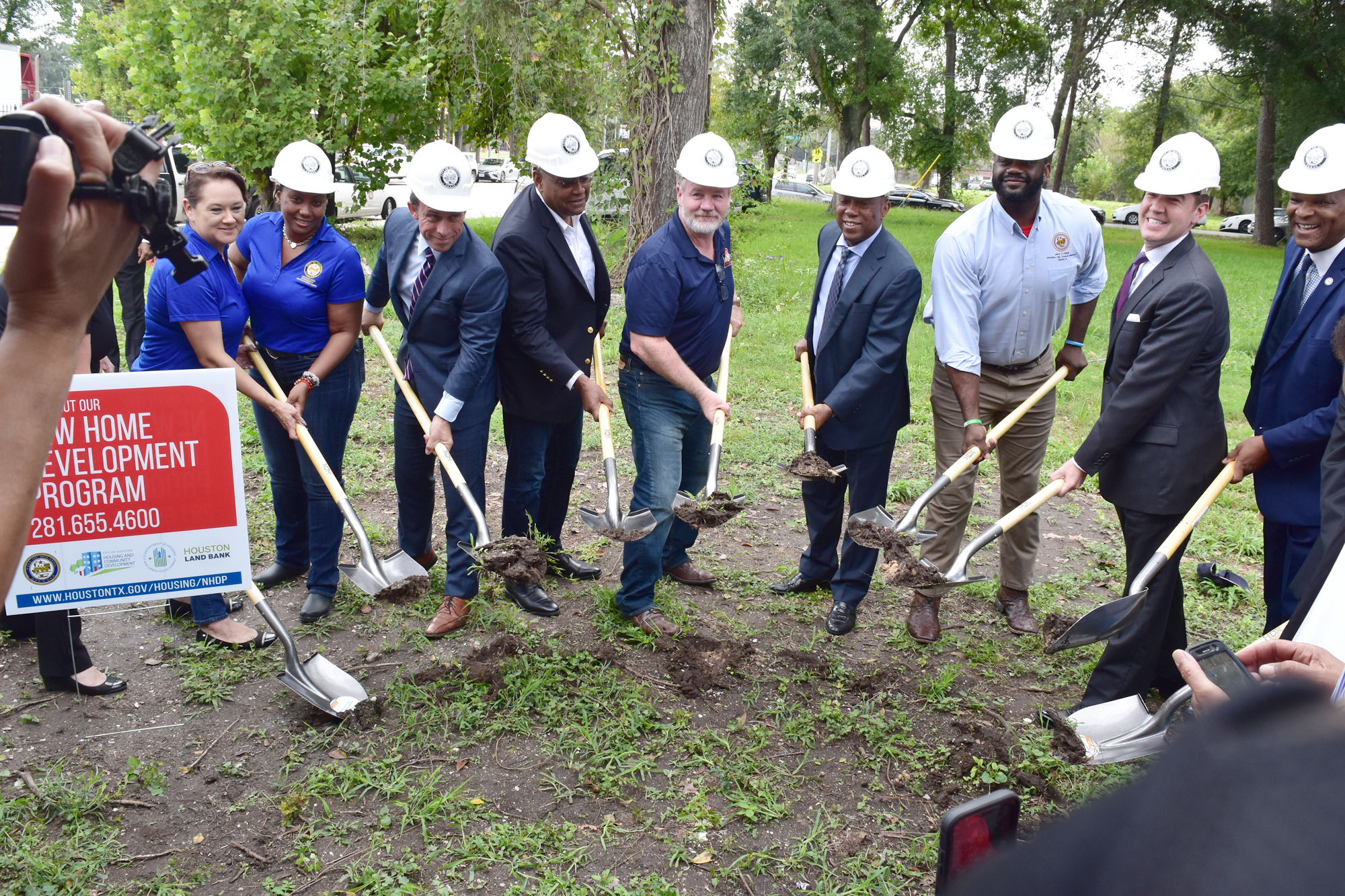
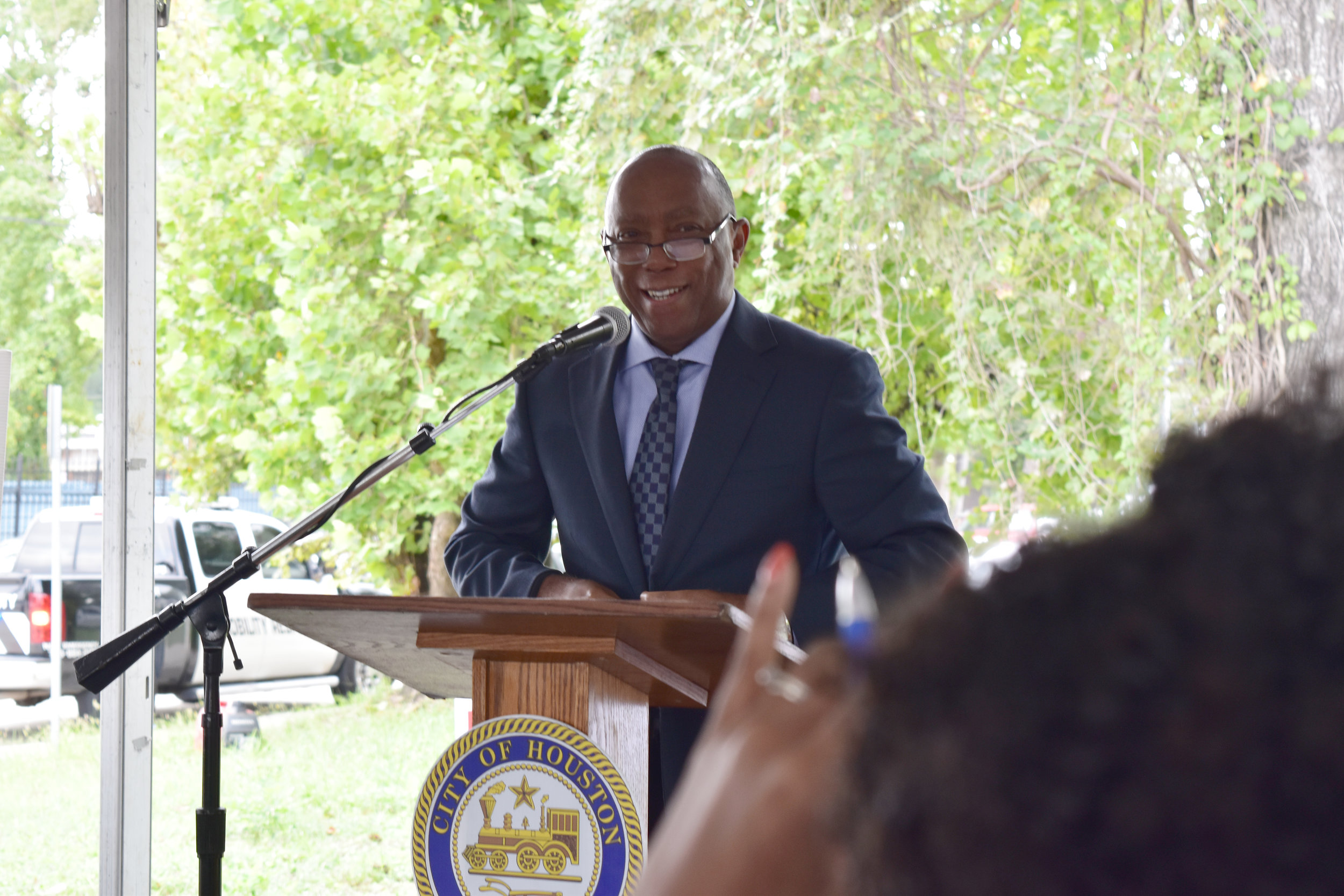
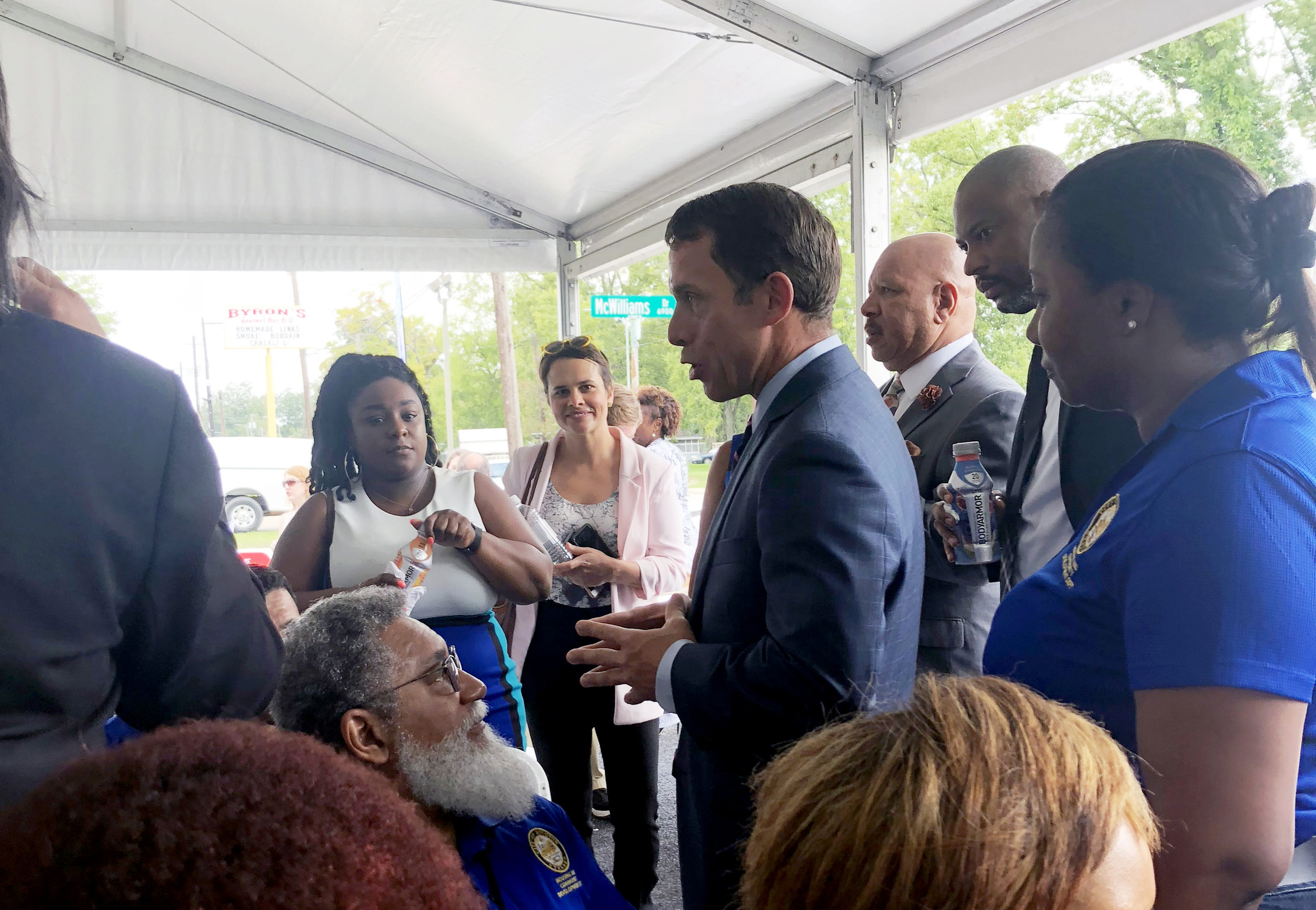
Macon Starks Update
The Macon Starks project is a housing development at the intersection of Macon and Starks Streets in the Bonton neighborhood. This housing project, which began a couple years ago, was met with a few delays along the way, but we are pleased to announce that the five senior housing units have been built and all are currently occupied. This project is a partnership between East Dallas Community Organization and [bc].
The units are a mix of duplex and single family dwellings centered around a communal garden space with raised planter beds. We look forward to advancing our design practice through different housing typologies serving the various populations of our cities.
Acres Homes: New Home Development Program
Healthy, viable communities rely on strong interpersonal ties at the neighborhood level—and the preservation of affordable housing is crucial to this equation. With that in mind, we are excited to announce a partnership between buildingcommunityWORKSHOP and the City of Houston focused on creating affordable single family homes for sale using lots available from the Houston Land Bank.
Building off of our work with the Disaster Recovery Round 2 (DR2) program, [bc] is partnering with the City to design 18 new, single-family homes in the Acres Homes neighborhood. Through DR2, we had the opportunity to work with local designers in developing a Community Engagement process to set contextual and programmatic design preferences for the targeted neighborhoods and to produce informed schematic home designs, including floor plans and elevations. Taking into consideration lessons learned from our affordable housing projects and the recent changes to the floodplain ordinance in Houston, [bc] worked to adapt the designs to pier and beam foundation as well as to increase their spatial efficiencies. These home designs are based on the feedback received during the DR2 engagement process, individual design meetings with over 300 households, and our recent participation in the Acres Home neighborhood design charrette through the Complete Communities initiative.
A Unique Approach to Housing Affordability
By building on lots owned by the Houston Land Bank, this program establishes a long-term strategy for affordability in the Acres Homes neighborhood. The Houston Land Bank relies on the use of strategic relationships between developers, builders, community organizations, and other stakeholders to stimulate the revitalization of vacant, abandoned, and/or tax foreclosed properties.
Why New Home Development?
The City of Houston’s New Home Development Program concentrates on bringing infill homes built on vacant lots, adding options for healthy affordable housing that increase neighbor proximity and give more families the opportunity to become first-time homebuyers.
Building new homes increases a community’s physical assets, encouraging future development and investment. Furthermore, partnerships between home designers, builders, and community organizations engaged in community revitalization are strengthened when the affordable housing stock is developed.
Here’s the Master Plan for Acres Homes:
Stay tuned for more updates on the Acres Homes development. We look forward to sharing more with you here on our website and in our newsletter!
Rapido CORE Accessory Dwelling Unit
We have developed a series of accessory dwelling units (ADUs), exploring different outdoor design layouts that allow for adaptation and flexibility of placement in multiple lot configurations. All of our ADU designs utilize [bc]'s RAPIDO CORE, a disaster recovery housing modular unit, designed for durable and fast rehousing post disaster. Check out more information about this initiative and the details for each ADU design option at [bc]'s People's Design Library.
There are many reasons a property owner would want to invest in a RAPIDO ADU: disaster preparedness, temporary housing during repairs or reconstruction, increase affordable units in the city and provide extra income to homeowners.
These structures can be built quickly using standard materials and construction methods and are designed on raised platforms in order to avoid damage from flooding. A RAPIDO ADU can also be used as a safe house during a storm, especially if your home sustains serious damage. Because RAPIDO COREs can be built quickly, the ADU can act as temporary housing and allow homeowners whose houses are in need of repairs to remain on their property while their home is repaired or rebuilt. ADUs are also often rented out to individuals, and this extra structure can give the homeowner an extra source of income once they have returned to their repaired home.
sustainABLEhouse Model Home in Corpus Under Construction
Learn more about sAh Corpus Christi here!
[bc] and the Community Development Corporation of Brownsville (CDCB) have partnered to bring the sustainABLEhouse model of single-family affordable housing development to the city of Corpus Christi in order to provide housing choice to residents of the Hillcrest and Washington Coles neighborhoods who have been impacted by the Harbor Bridge reconstruction project and offered to participate in a voluntary relocation program managed by the Port Authority and the Texas Department of Transportation (TxDOT).
Construction is now underway on a model home at 2517 Persimmon St. The model home will provide a tangible example for Corpus Christi residents of the quality of sustainABLEhouse homes, demonstrating the possibilities of custom-designed affordable housing. sustainABLEhouse works to combat the stigma around affordable housing, proving that affordability does not have to mean a lack of choice or quality, as it often does for many. The model home will show families how they can customize their design to achieve the kind of home that they want, or even model a new home on their previous one. sustainABLEhouse will provide residents with homes that meet their preferences and are durable and efficient.
We are excited to bring sustainABLEhouse to this new geography and to serve residents of Corpus Christi with customized affordable homes that suit their needs and their budgets.
Cottages Featured in Two Exhibitions
A view of The Cottages at Hickory Crossing in Dallas, TX.
The Cottages at Hickory Crossing, the 50-unit permanent supportive housing complex in Dallas, TX for which [bc] served as architect, will be featured in two new exhibitions this summer.
Re-opening June 14, 2018 at the Corcoran School of the Arts & Design at George Washington University is the Sustainable Native Communities Collective (SNCC) Bridging Boundaries exhibition. The exhibition, which runs through August 19, demonstrates "how art and design can create space for unification and negotiation." Join us for the opening reception!
This October, Design for Good: Architecture for Everyone will open at the Museum of Design Atlanta (MODA). The exhibition is curated by the author of the eponymous book, John Cary.
We are thrilled to have our work featured in these important exhibitions. If you have a chance to visit them, engage with us on social media, snap a picture, and let us know what you think!
Cultivating Connections Final Presentations
See more posts about our work in DC!
On May 1, students in Professor Barbara Brown-Wilson's Ecological Democracy course at the University of Virginia School of Architecture gave their final presentations for their Cultivating Connections project, through which they explored how to connect the Kenilworth Park & Aquatic Gardens—a National Park—to the surrounding Kenilworth-Parkside community. Students presented via video conference to a group which included representatives of Friends of Kenilworth Aquatic Gardens, the National Park Service, and the DC Office of Planning. The presentations wrapped up a semester-long project for the students, who received guidance and mentorship in public interest design and community engagement practices from [bc]'s Washington, DC team.
Over the course of the semester, activities that informed their project included visits to the park and design activities with visitors. As part of NatureFest—a weeklong camp at Kenilworth Aquatic Gardens—UVA students asked young participants to draw maps of how they get to the park and representations of plants and animals they've encountered there, learning about where campers come from and how they interact with the park.
Check out images from the final presentation day below!
This project is supported in part by a grant from the National Endowment for the Arts. To find out more about how National Endowment for the Arts grants impact individuals and communities, visit www.arts.gov.
RAPIDO in Houston
With the support of a funding partnership with Enterprise Community Partners, Inc., [bc] is working to bring the RAPIDO model to Houston, working with families affected by Hurricane Harvey in collaboration with Texas Low Income Housing Information Service and Covenant Community Capital.
We've worked to adapt RAPIDO's temporary-to-permanent housing model for this new geography and have designed a temporary-to-permanent unit for a family. RAPIDO’s housing model deploys a temporary CORE unit to family’s property weeks after a disaster, which can be expanded into a permanent home through a system of semi-custom designed additions. The purpose of the RAPIDO CORE is to bridge the gap between relief and recovery housing and provide a pathway to meet long-term family needs and preferences.
Our first RAPIDO prototype in Houston will provide the process and the means for a Houston family to become homeowners and allow us to pilot RAPIDO in Houston.
We're also working to design and build an Accessory Dwelling Unit prototype (ADU), which will pilot additional possibilities for post-disaster housing and pre-disaster planning. After a disaster, RAPIDO's ADU allows homeowners whose houses are in need of repairs to remain on their property while the repairs are made. After the homeowner moves back into their primary home, the ADU can be rented out as affordable housing, providing an extra income. The RAPIDO ADU unit can also play a role pre-disaster by providing a safe space on a homeowner's property.
Check out photos below!
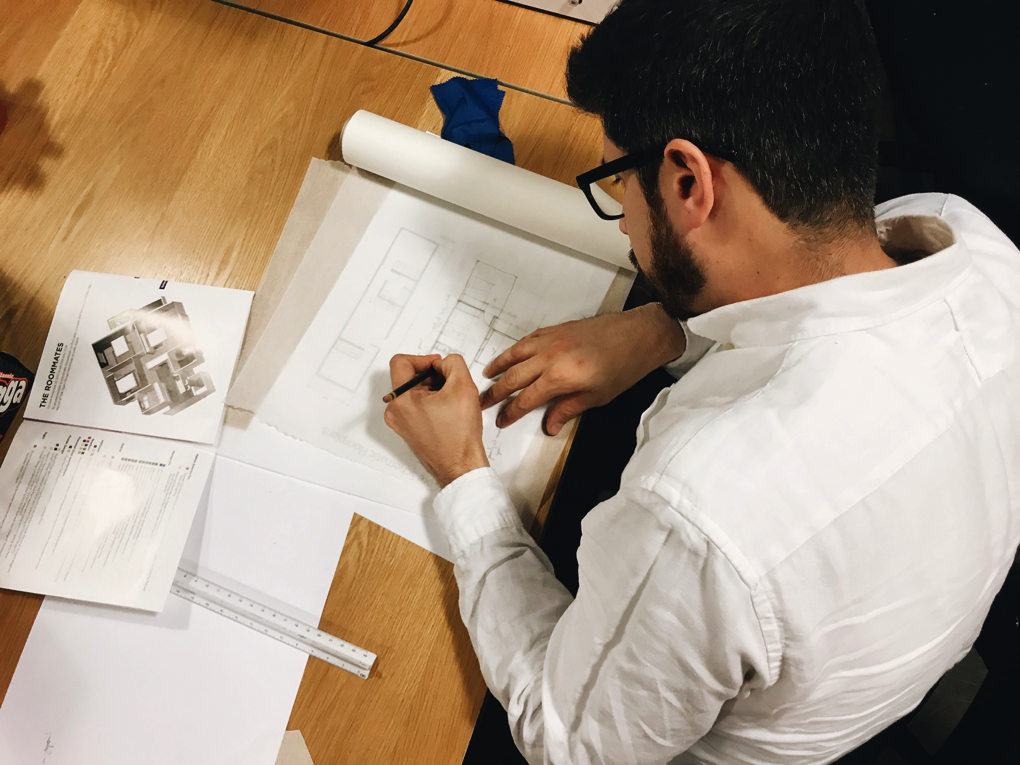
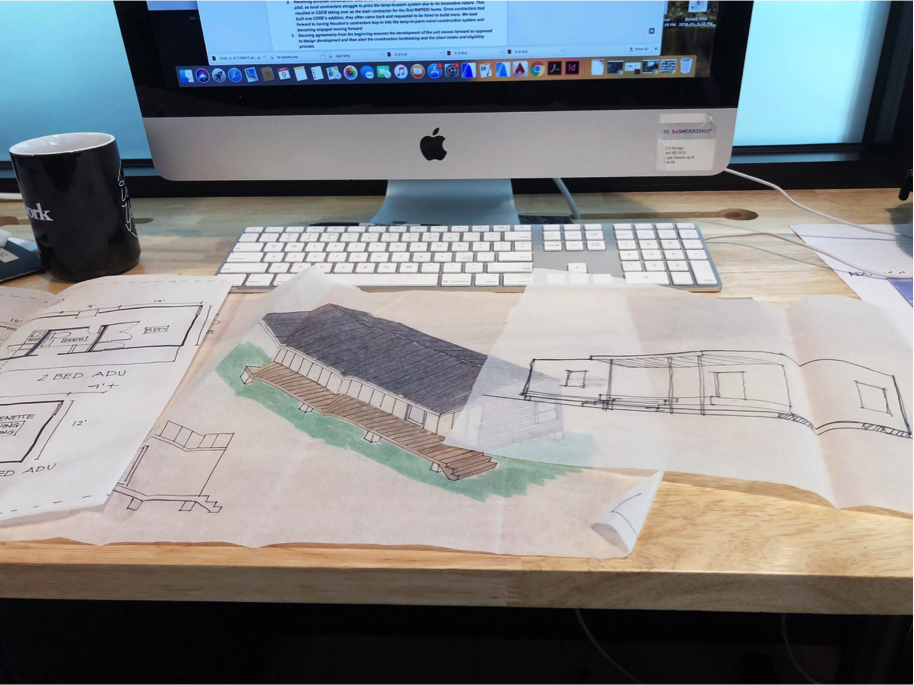
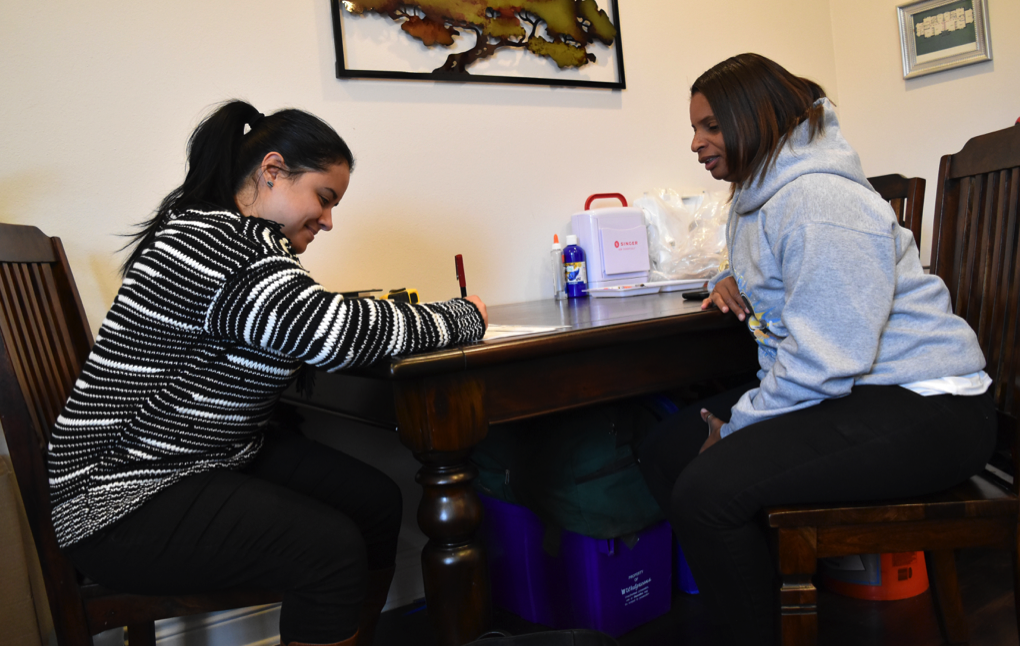
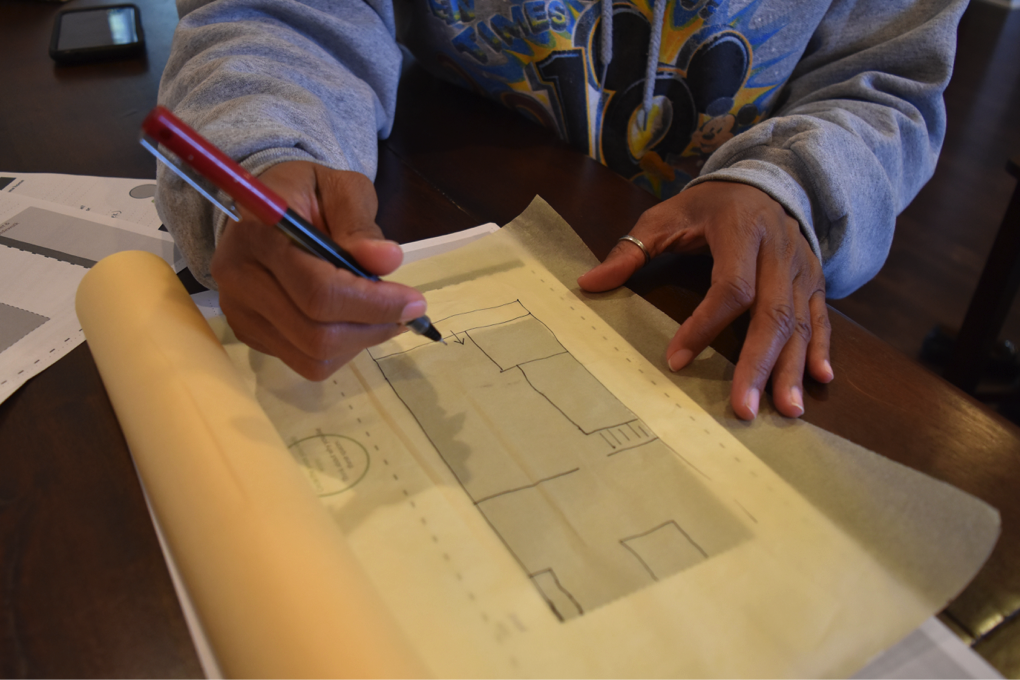

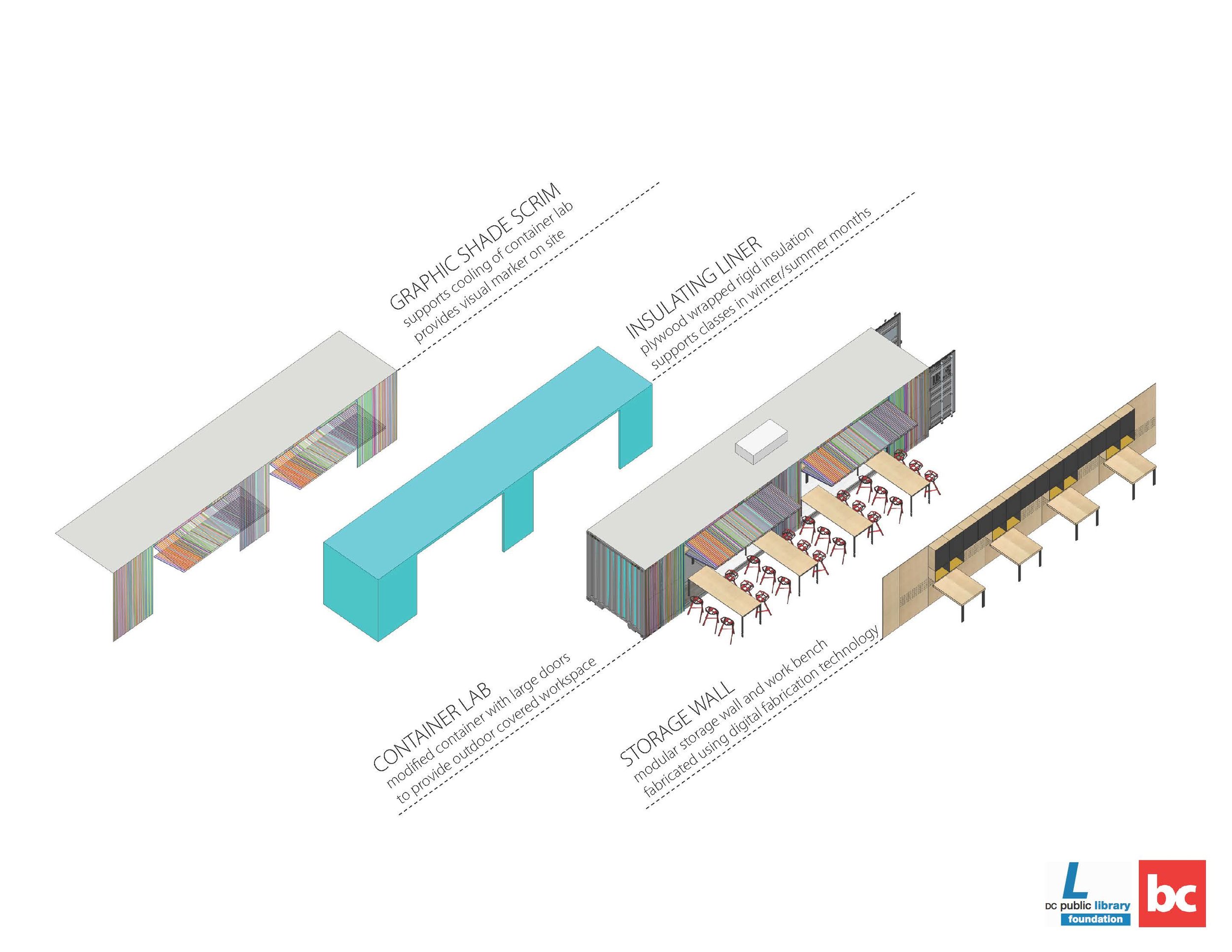
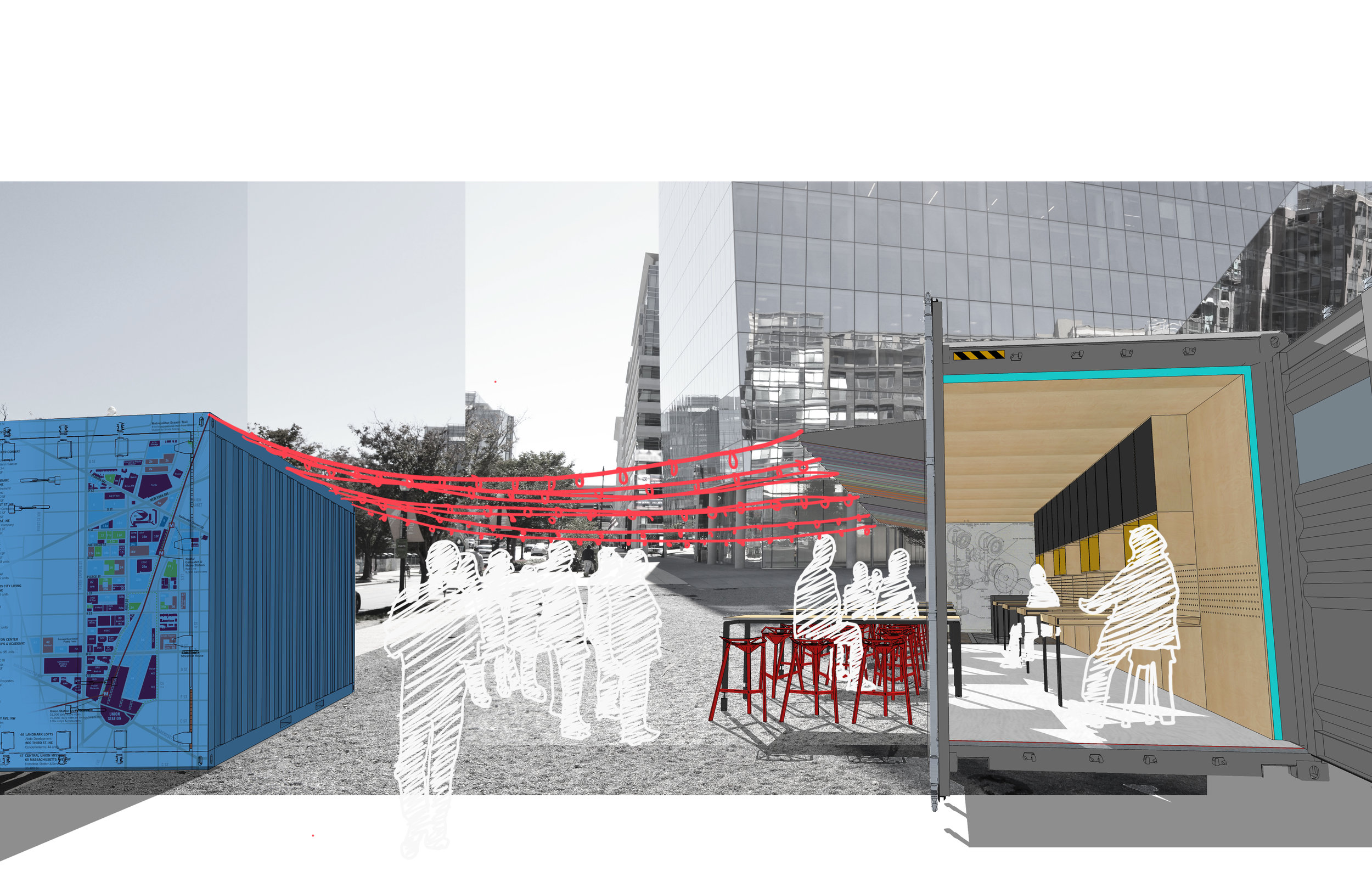
Construction to Begin on Container Lab
[bc] has partnered with the DC Public Library Foundation to design and build a mobile, deployable fabrication lab (or "fab lab"), housed in a modified shipping container, to supplement access to library resources while the Martin Luther King Jr. Memorial Library undergoes a three-year renovation, piloting new methods of reaching communities in place. The Container Lab will house a variety of tools that patrons can use, such as a CNC router, a laser cutter, and a 3D printer. These very tools will be utilized in building the structure!
[bc] produced design schematics for this design/build project, pictured above. We recently received a building permit and are set to begin construction on the Container Lab in April.
We will host a number of community build days to engage DC residents in the process, so stay tuned to learn more about how you can get involved!
![[bc]](http://images.squarespace-cdn.com/content/v1/5248ebd5e4b0240948a6ceff/1412268209242-TTW0GOFNZPDW9PV7QFXD/bcW_square+big.jpg?format=1000w)

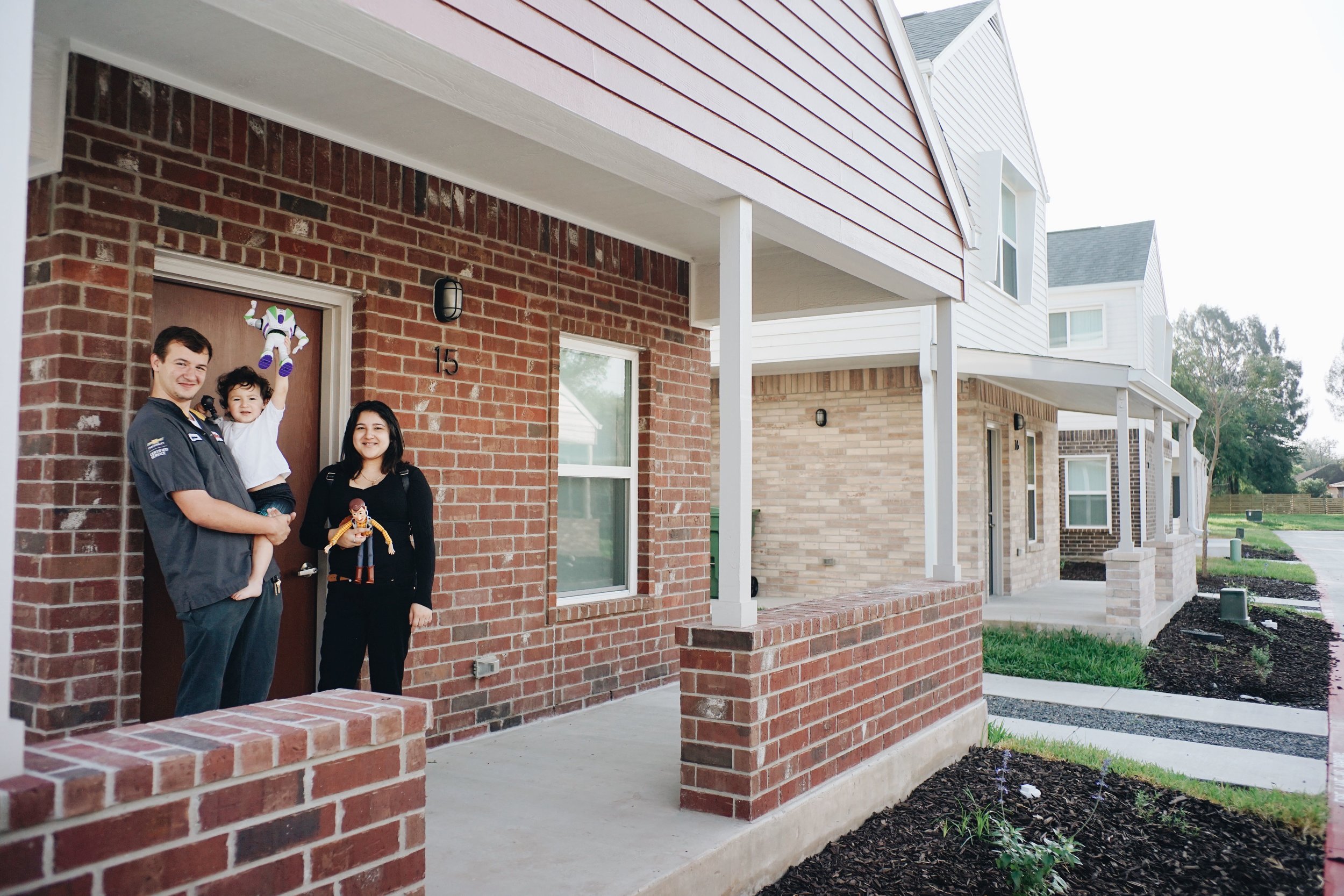
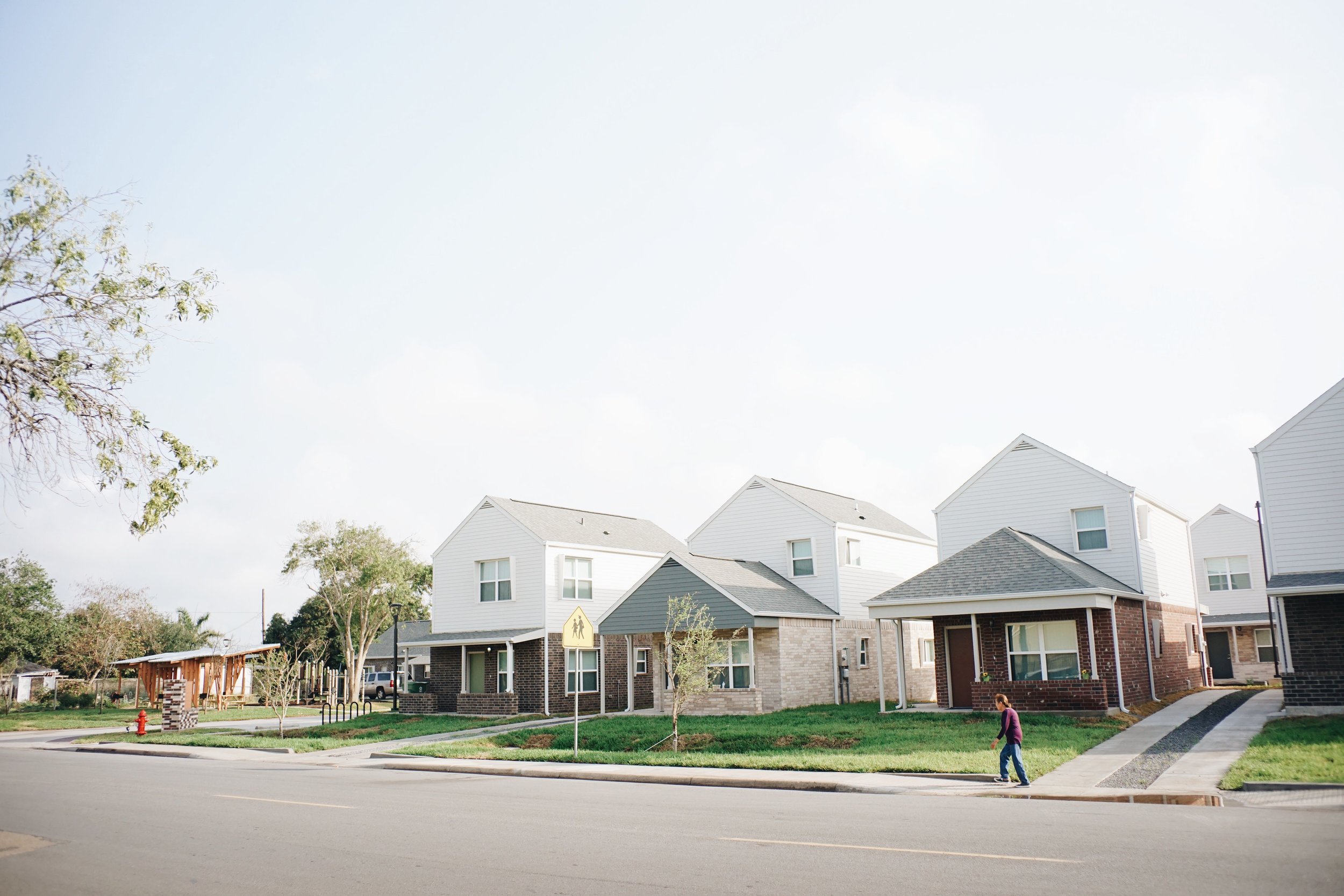
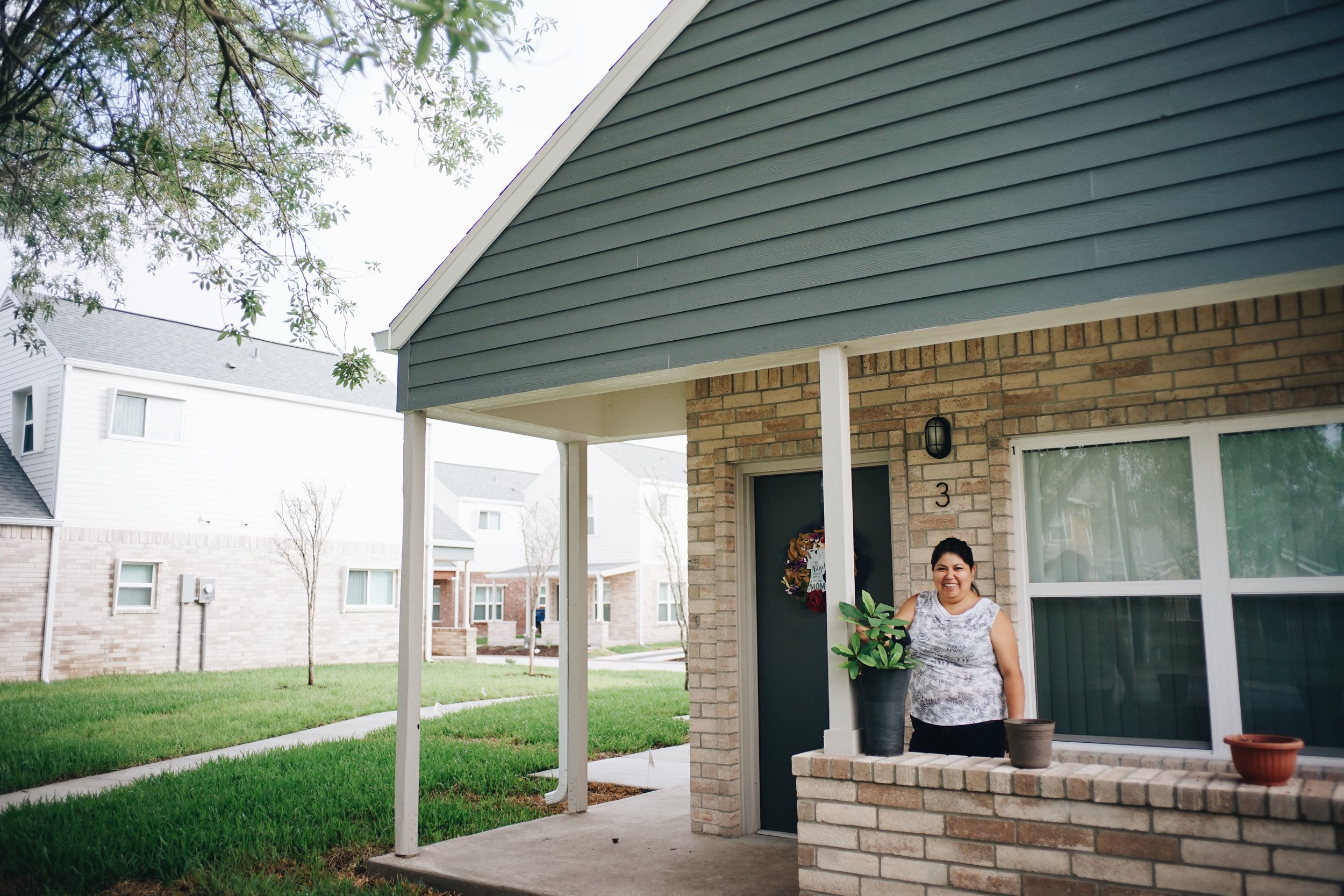
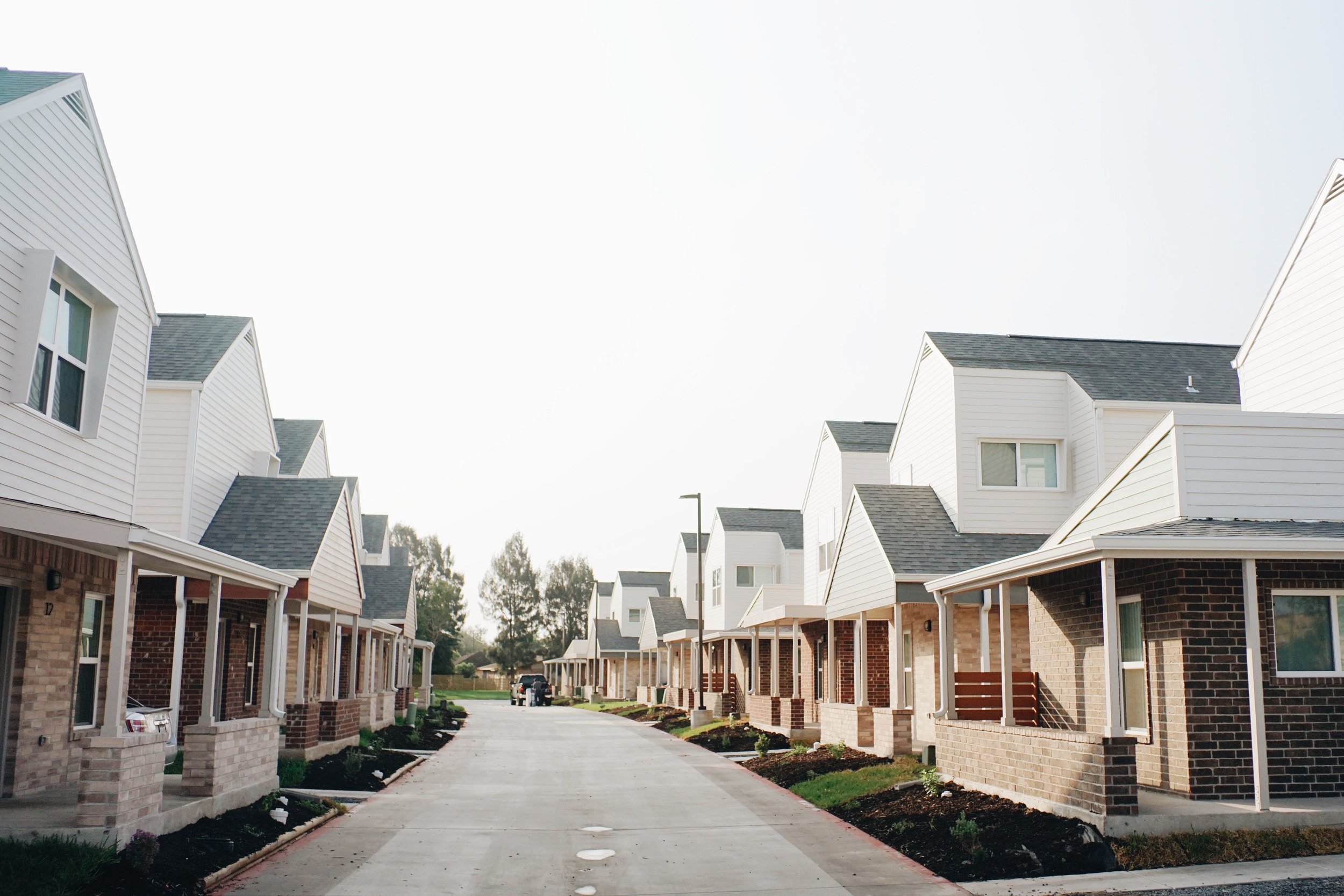
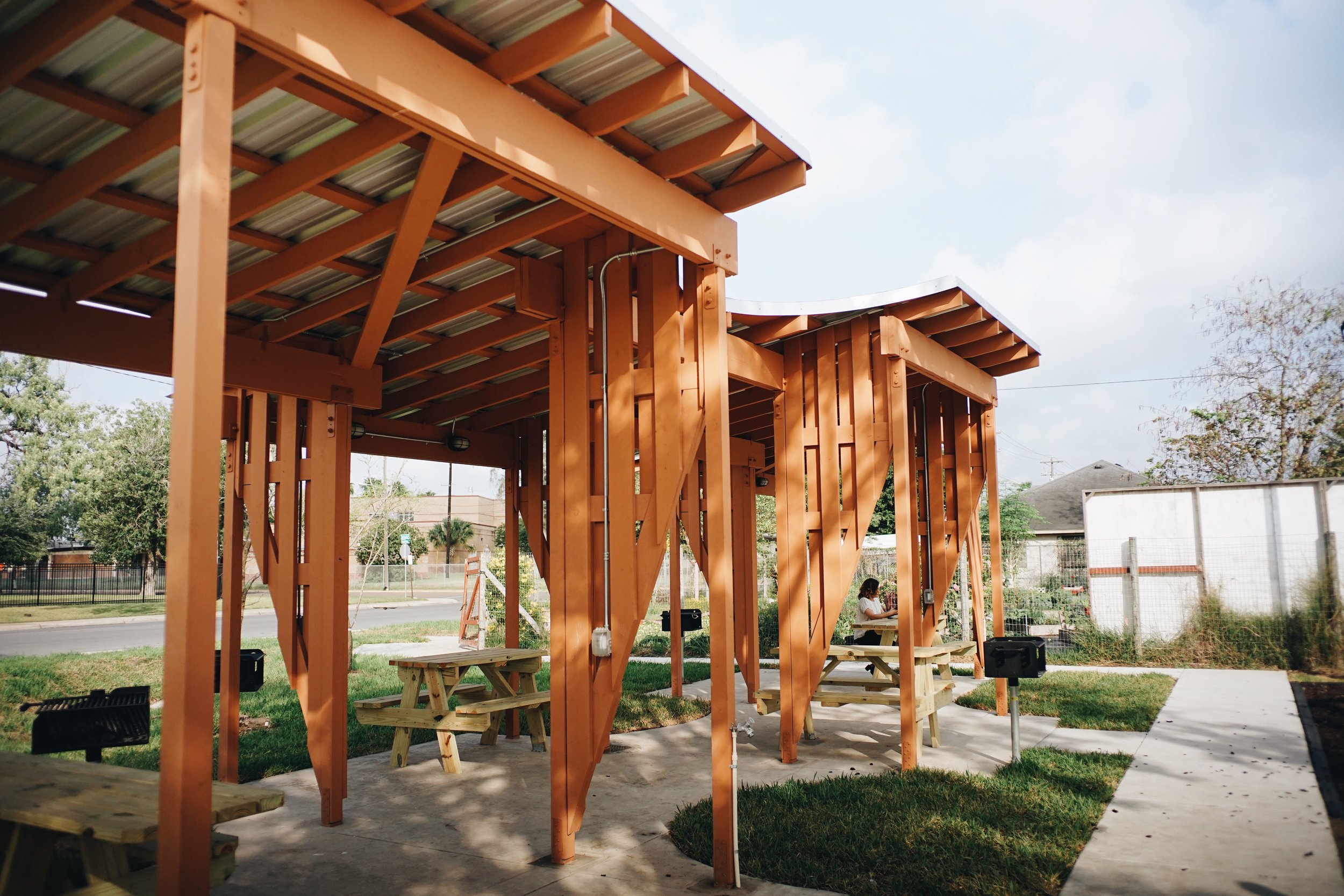
![Design Associate Luis Murillo works on Casitas Azucar in [bc]’s Brownsville office](https://images.squarespace-cdn.com/content/v1/5248ebd5e4b0240948a6ceff/1552404070876-XO8230ACNGY30W9G9922/luis_drawing.jpg)


